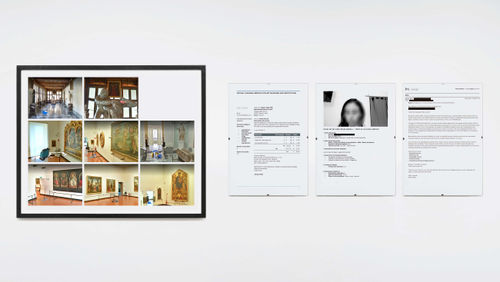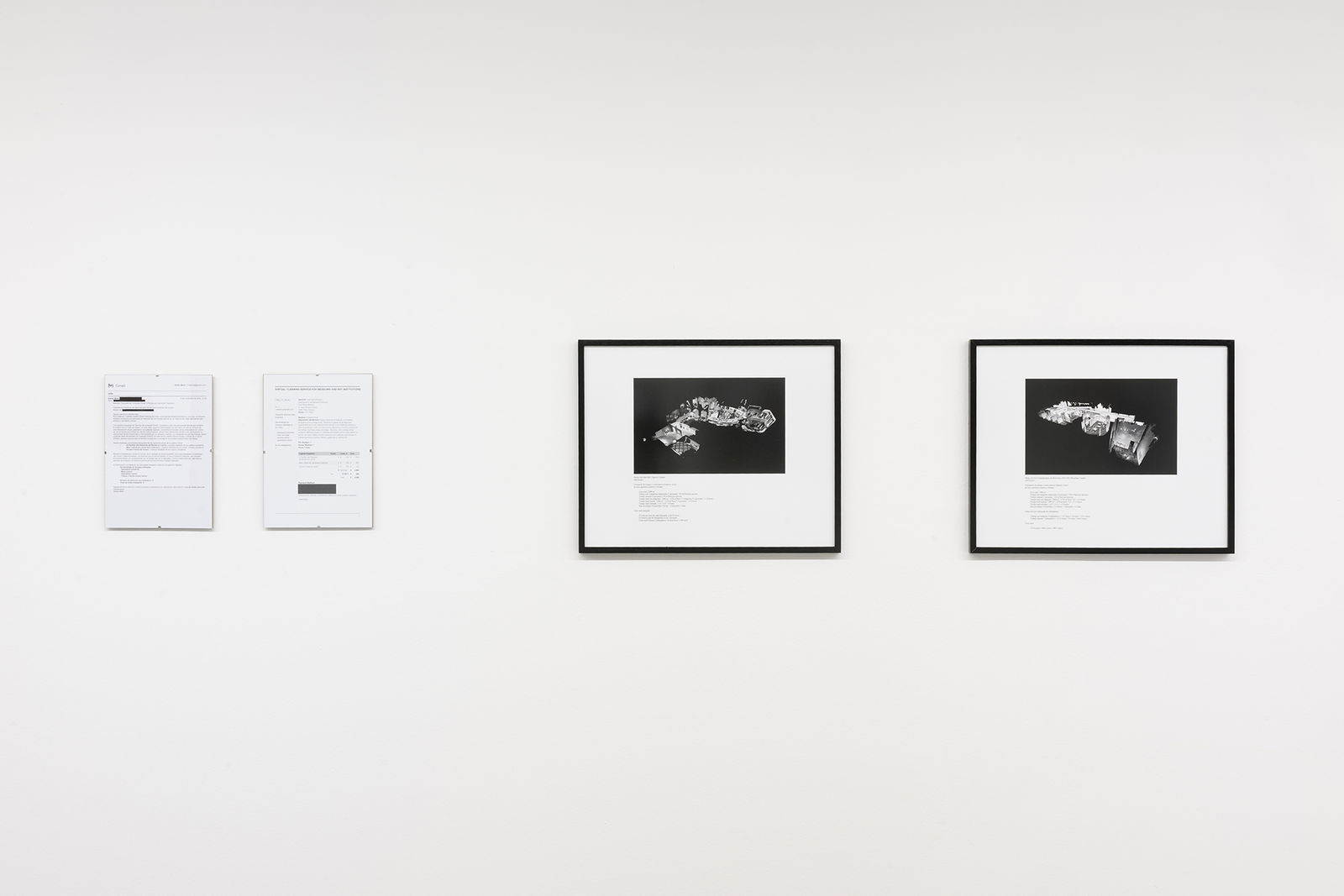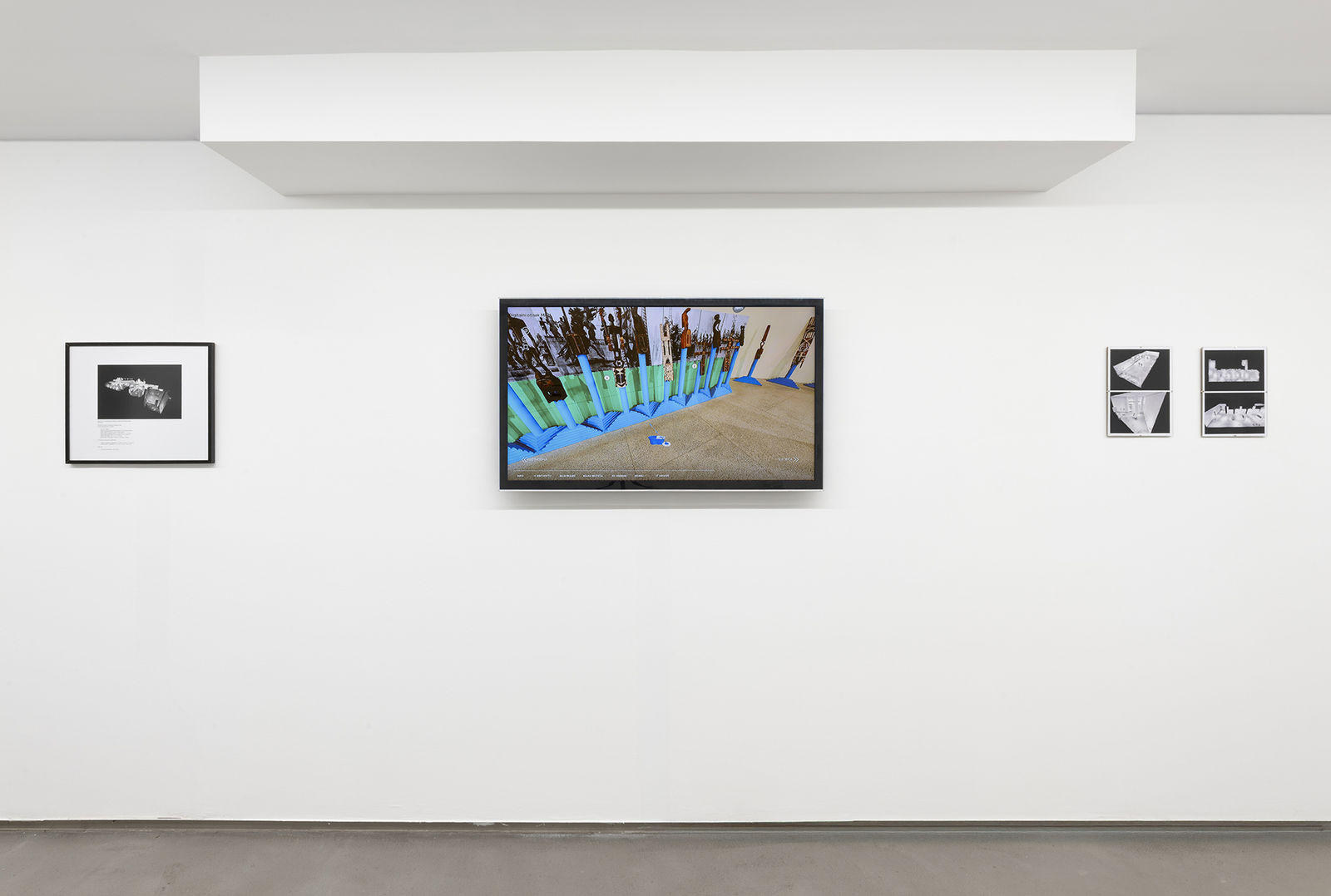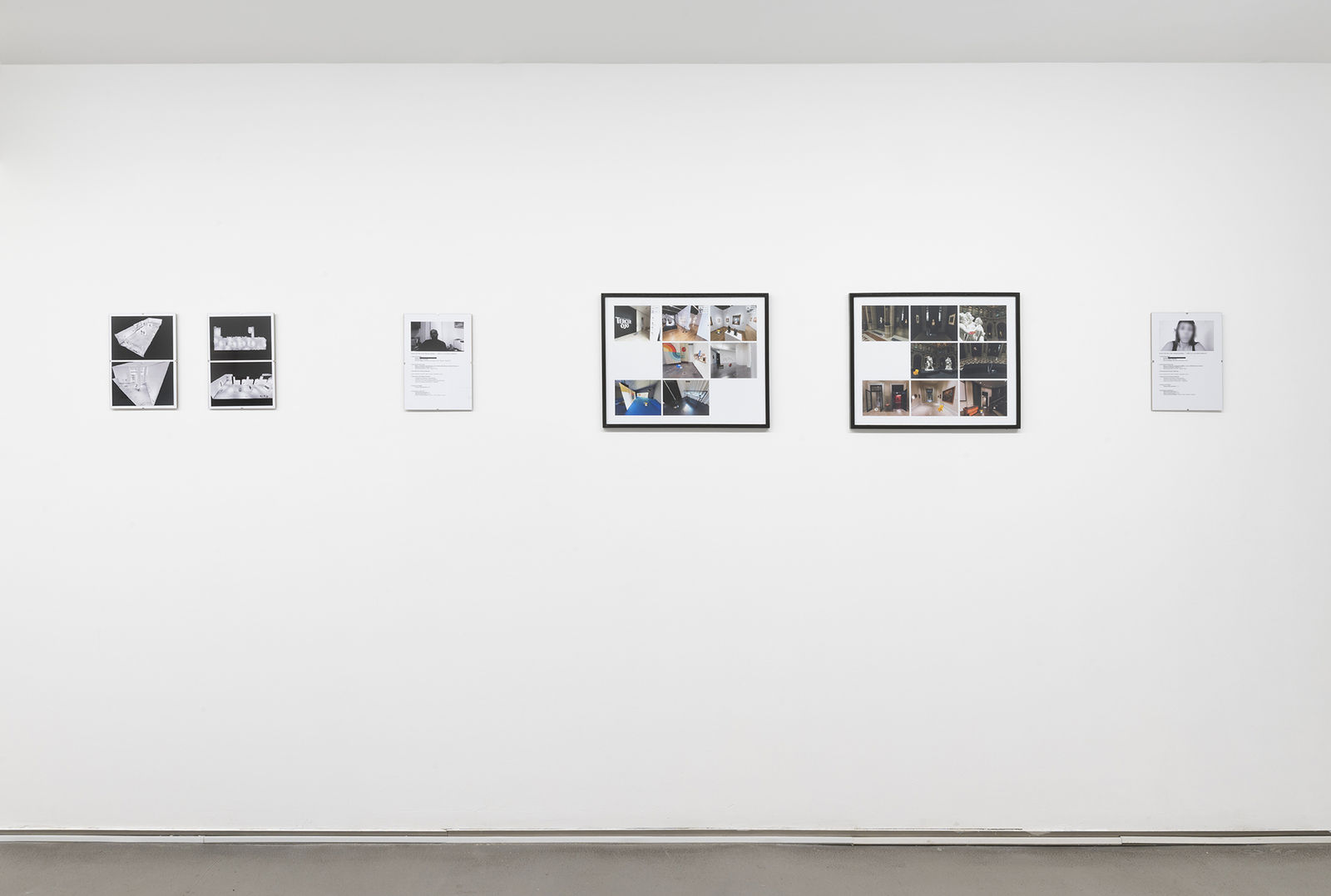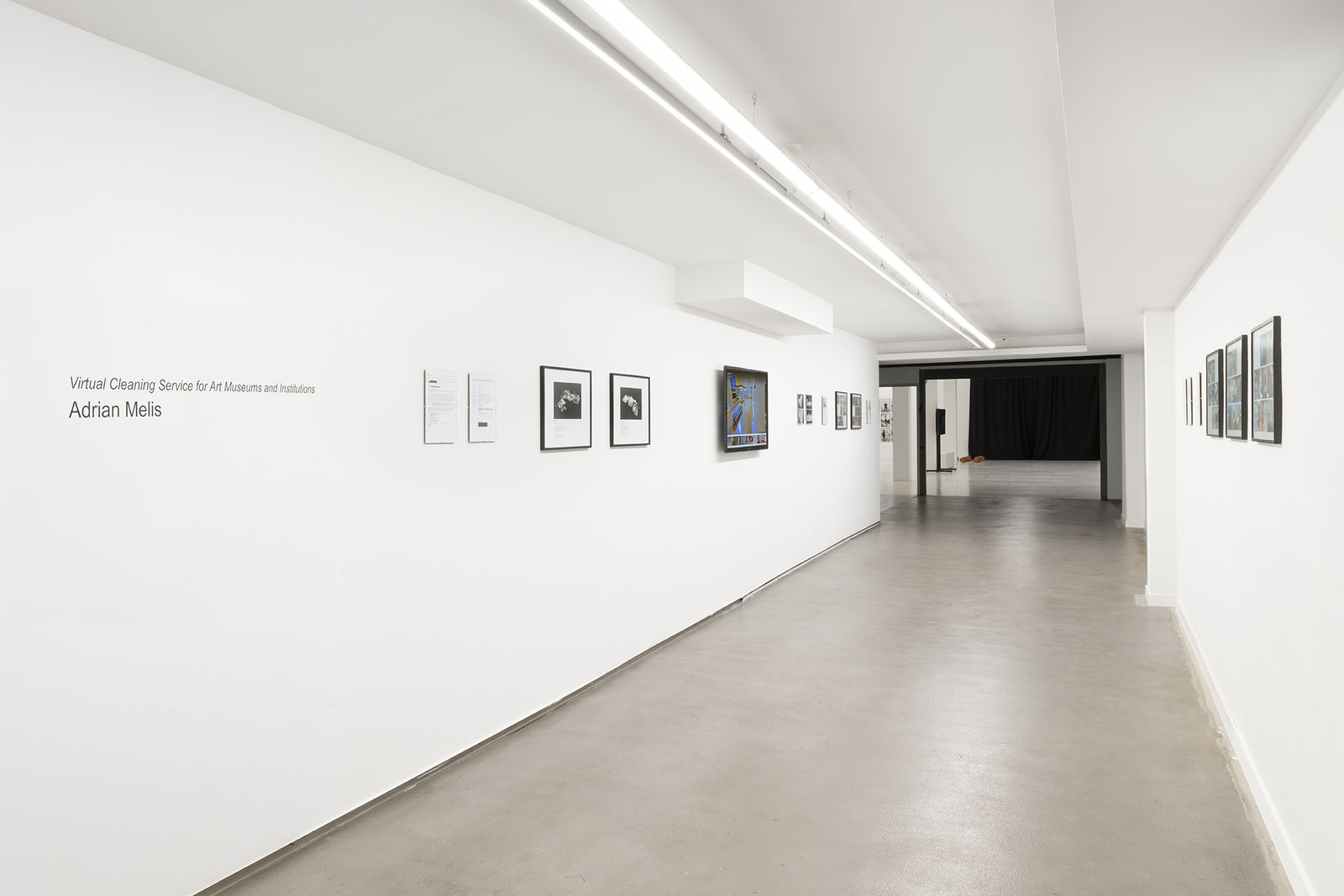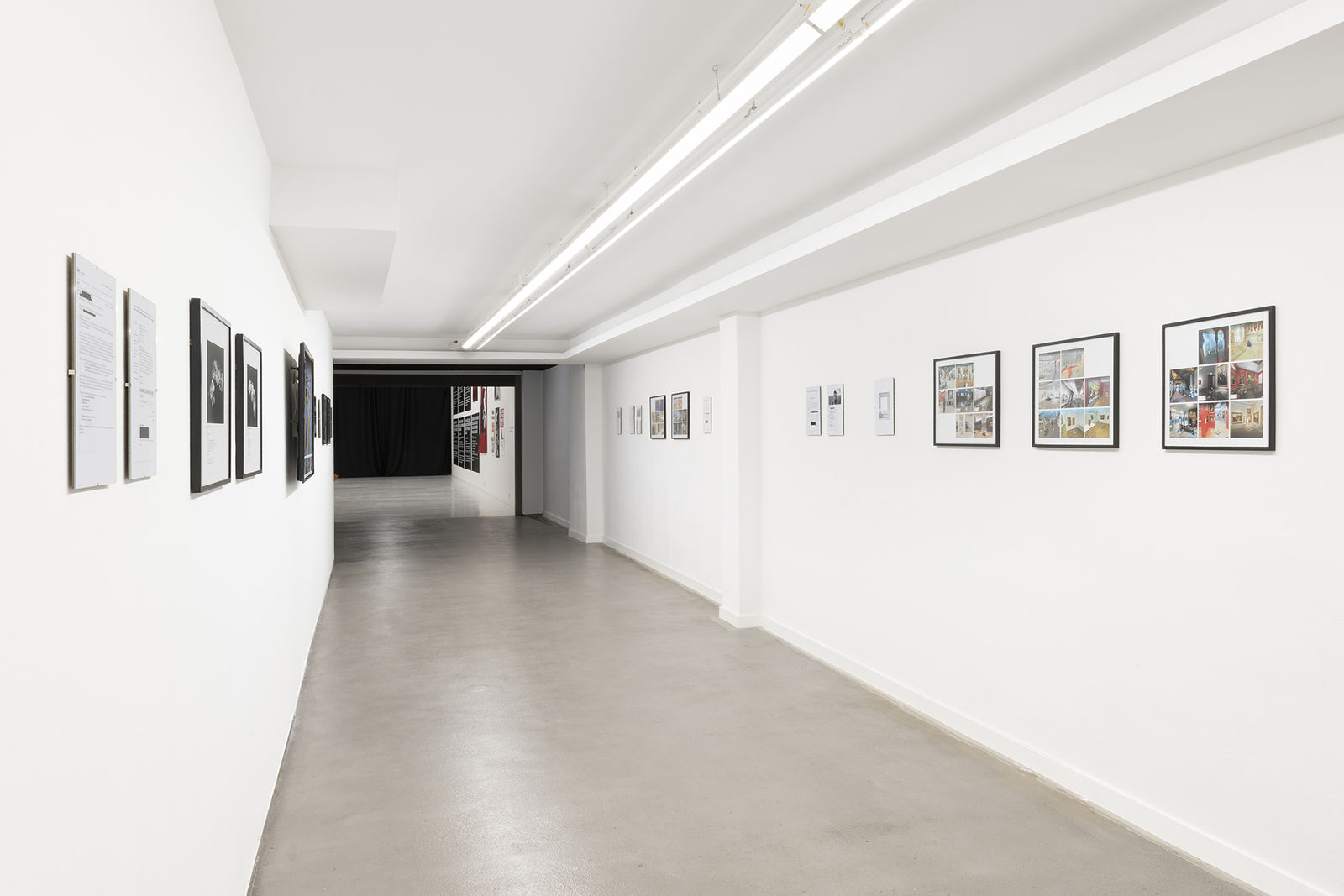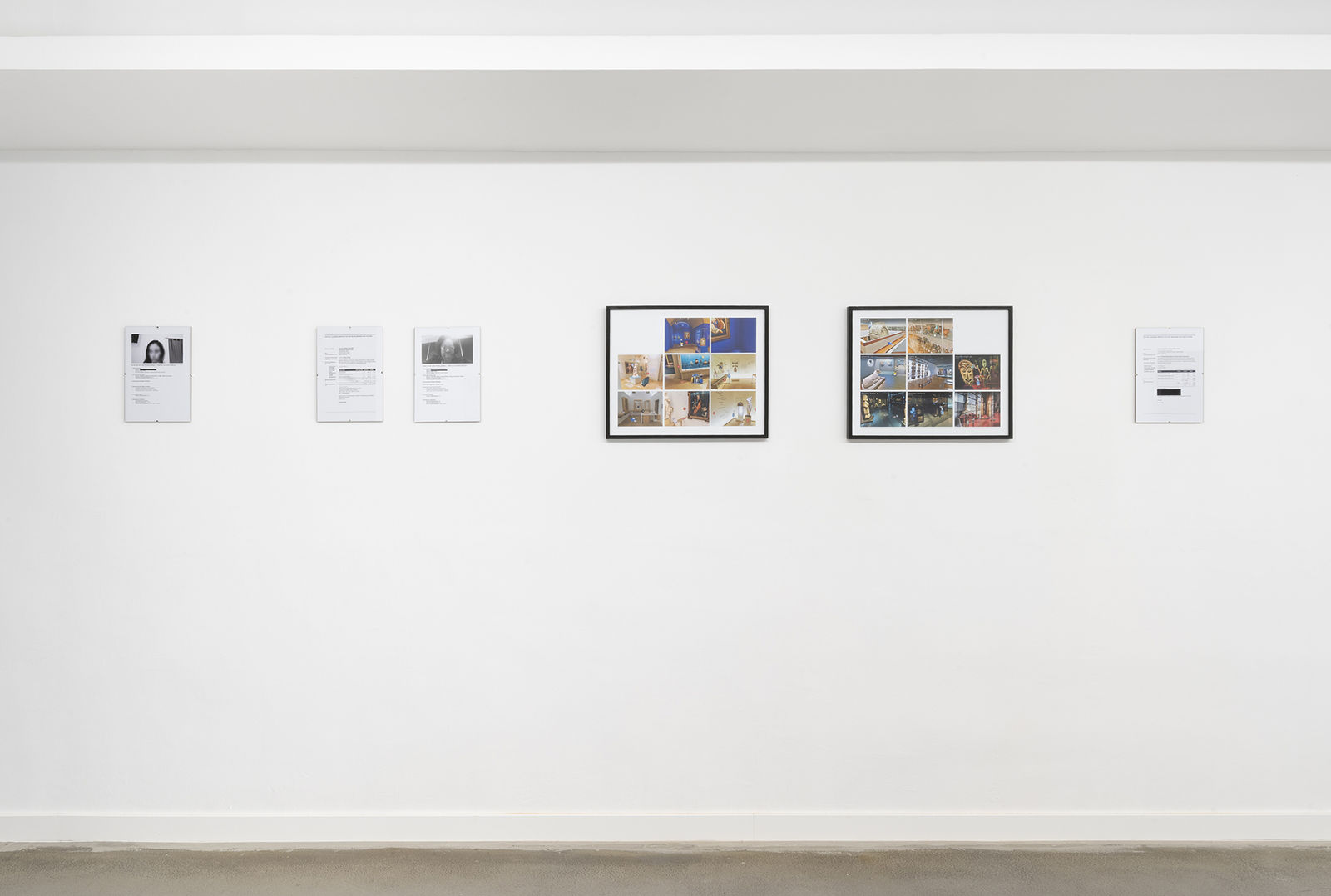Virtual Cleaning Service for Art Museums and Institutions is a performative and collaborative project that combines symbolic action, institutional critique, and collective labor. Through it, Adrian Melis brings together a team of artists and workers in precarious situations —mainly from Latin America and Africa— to offer a “virtual cleaning” service to modern and contemporary art museums in Europe and the United States, especially those with historical ties to colonialism and cultural appropriation.
Using the virtual tours available on the websites of these institutions, the participants “enter” the digital galleries and transform the computer cursor into cleaning tools —brooms, vacuum cleaners, industrial mops— to carry out real-time cleaning actions within the virtual exhibition spaces.
The act of “cleaning” functions here as a political and poetic gesture. More than a technical operation, it is a symbolic intervention that reverses the hierarchies of the art world: those who have historically been excluded from prestigious cultural spaces assume the role of active subjects within them, even if only in their virtual version. The project thus proposes an inversion of roles in which former margins “clean” the centers of power, questioning the structures of visibility, labor, and value that sustain the contemporary art institution.
Once the action is completed, Melis documents the interventions in video and photography, generating an archive composed of audiovisual records and symbolic invoices sent to the institutions, calculated according to the size of the cleaned space and the museum's prestige. This administrative gesture —as bureaucratic as it is absurd— provokes real exchanges of emails and phone calls between the “cleaning employees” and the institutional departments, shifting the critique from the symbolic terrain to the operational one.
Virtual Cleaning Service for Art Museums and Institutions reveals the tensions between art, labor, and history. It transforms the domestic and subordinate act of cleaning into an act of resistance and reappropriation, showing how the invisible labor of the peripheries can break into the central spaces of contemporary art. Through humor, irony, and collaboration, the project confronts the dynamics of power and the contradictions between representation, inclusion, and exploitation within the global art system.
Adrian Melis develops his practice from the experience of having lived between two deeply different socioeconomic systems, Europe and Cuba, which allows him to critically observe how each context produces its own logics of labor, value, and behavior. His research focuses on the tensions between ideology, economy, and everyday life, especially around the concept of “labor” as a social construction conditioned by politics, markets, and power structures. Using tools from anthropology, behavioral psychology, journalism, statistics, and economics, Melis examines phenomena such as absurd bureaucracy, institutional inefficiency, the materialization of absence, and forms of immaterial or precarious labor.
![]()
-
 Adrian Melis, Virtual Cleaning Service for Museums and Art Institutions. Galleria degli Uffizi, 2025
Adrian Melis, Virtual Cleaning Service for Museums and Art Institutions. Galleria degli Uffizi, 2025 -
 Adrian Melis, Virtual Cleaning Service for Museums and Art Institutions. Musée du Louvre, 2025
Adrian Melis, Virtual Cleaning Service for Museums and Art Institutions. Musée du Louvre, 2025 -
 Adrian Melis, Virtual Cleaning Service for Museums and Art Institutions. Museo de América, 2025
Adrian Melis, Virtual Cleaning Service for Museums and Art Institutions. Museo de América, 2025 -
 Adrian Melis, Virtual Cleaning Service for Museums and Art Institutions. Museo Nacional del Prado, 2025
Adrian Melis, Virtual Cleaning Service for Museums and Art Institutions. Museo Nacional del Prado, 2025 -
 Adrian Melis, Virtual Cleaning Service for Museums and Art Institutions. Museu d'Art Contemporani de Barcelona (MACBA), 2025
Adrian Melis, Virtual Cleaning Service for Museums and Art Institutions. Museu d'Art Contemporani de Barcelona (MACBA), 2025 -
 Adrian Melis, Virtual Cleaning Service for Museums and Art Institutions. Quai Branley Museum, 2025
Adrian Melis, Virtual Cleaning Service for Museums and Art Institutions. Quai Branley Museum, 2025 -
 Adrian Melis, Virtual Cleaning Service for Museums and Art Institutions. Rijksmuseum, 2025
Adrian Melis, Virtual Cleaning Service for Museums and Art Institutions. Rijksmuseum, 2025 -
 Adrian Melis, Virtual Cleaning Service for Museums and Art Institutions. The British Museum, 2025
Adrian Melis, Virtual Cleaning Service for Museums and Art Institutions. The British Museum, 2025 -
 Adrian Melis, Virtual Cleaning Service for Museums and Art Institutions. The Metropolitan Museum of Art, 2025
Adrian Melis, Virtual Cleaning Service for Museums and Art Institutions. The Metropolitan Museum of Art, 2025

